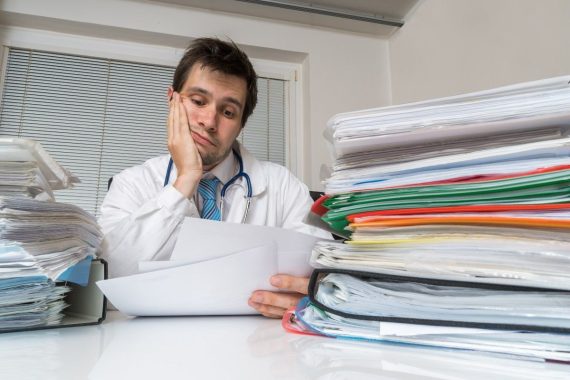Scottish GPs ‘more likely to leave NHS’ due to 6% pay award

More than 87% of Scottish GPs said that they are ‘more likely to leave the NHS’ as a result of the most recent pay award from the Government, the BMA has said.
Earlier this year, the Scottish Government accepted a Review Body on Doctors’ and Dentists’ Remuneration (DDRB) recommendation for a 6% pay rise for all doctors apart from juniors, who engaged in their own process this year and voted to accept an offer of a 12.4% pay rise for 2023-24, backdated to April.
The doctors’ union said that for the rest of the profession the pay award was ‘a massive disappointment’ and that with inflation taken into account ‘amounts to a real terms pay cut once again’.
In response, the union asked members for their thoughts on the pay award and 3,026 doctors responded.
The results of the survey found that:
- 86% felt the uplift was ‘too low’
- 82% said they were either ‘dissatisfied or very dissatisfied’ that the award recognises their contribution to the NHS
- 72% said it had ‘decreased their morale’ – of which 38% said it had ‘significantly done so’
- 54% said it had made them ‘more likely’, or ‘very much more likely’ to leave the NHS
Dr Andrew Buist, GPC Scotland chair, said the results specifically for GPs are broadly in-line with the overall trends, but that in places they were ‘actually a little worse’.
He said: ‘For example, 84% of GPs said that the pay award had decreased their morale, 88% were dissatisfied with pay award and 87% said they were more likely to leave the NHS as a result of the pay award.
‘These figures tell a story of a disillusioned workforce who, despite being constantly asked to meet increasing demand – are not properly valued or resourced for doing so.
‘It is clear that more and more GPs are increasingly likely to cut down the work they do – or leave general practice altogether.’
He said that this picture ‘should worry everyone who has an interest in the future of health care in Scotland’ and in particular patients, who are already at times struggling to access appointments.
He added: ‘On the current trajectory, and as we have already warned, things are only likely to get worse.
‘To fully assess the impact of the pay award we need to see whether Scottish Government follows the DDRB recommendations in full – which say GP practice expenses must be uplifted sufficiently to deliver the full pay award.
‘While we are keeping all of our options open at this stage, we are determined to make clear to Scottish Government that enough is enough – and this devaluing of our profession and how it is funded can go on no longer.’
The BMA also issued a workforce warning at the beginning of the year, saying that about 2,000 new GPs are required to satisfy demand across practices in Scotland.
In May, research from the BMA found that GP patient lists are formally closed to new registrants at almost one in ten Scottish GP practices.
The doctors’ union warned that general practice in Scotland is in ‘a sustainability crisis,’ with almost a quarter of a million more patients than 10 years ago and almost 90 fewer GP practices.
Meanwhile, in England, the BMA’s GP Committee advised practices to give all salaried GPs the DDRB-recommended 6% pay uplift regardless of their contract wording.
In its latest update to GPs, the committee indicated that negotiations on funding from the Government for this uplift are likely to finish by the end of September, with ‘payments made to practices promptly thereafter’.









